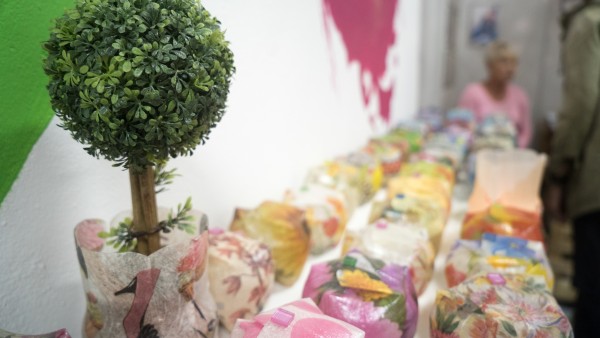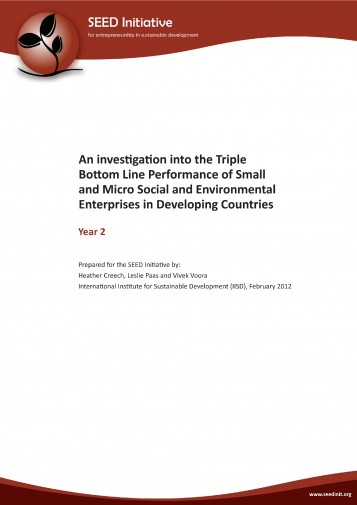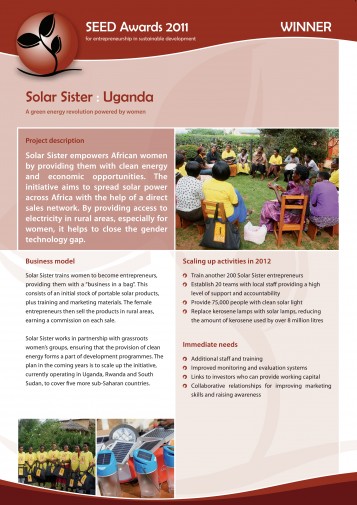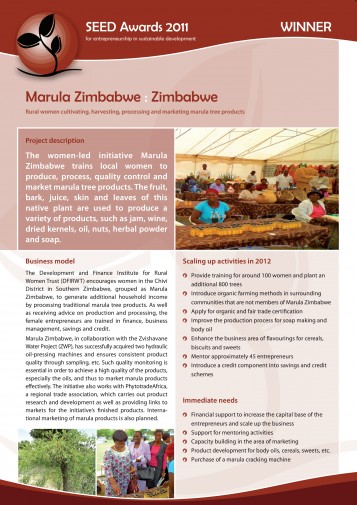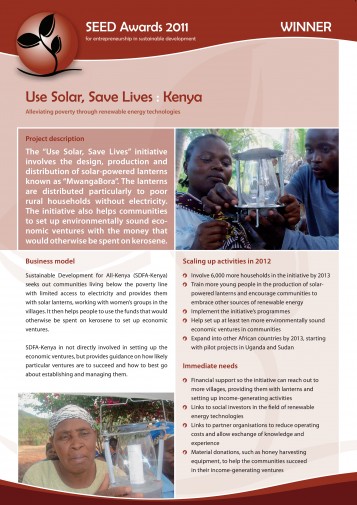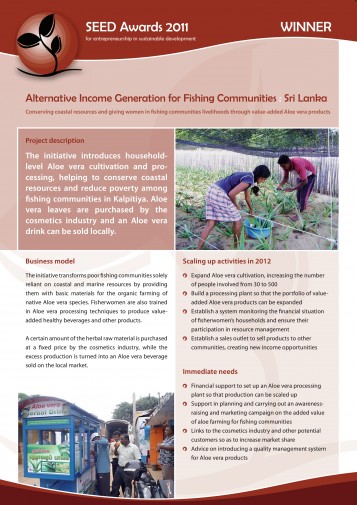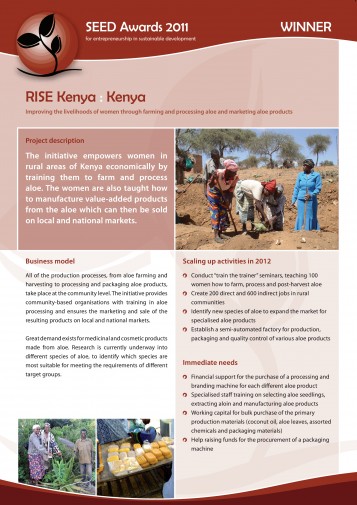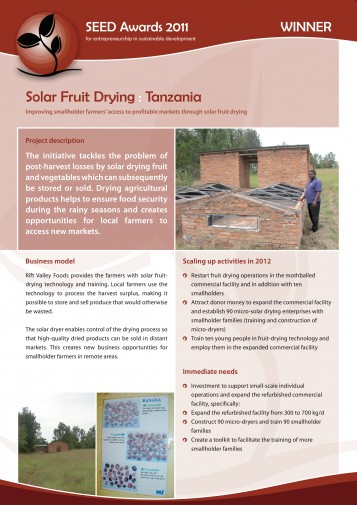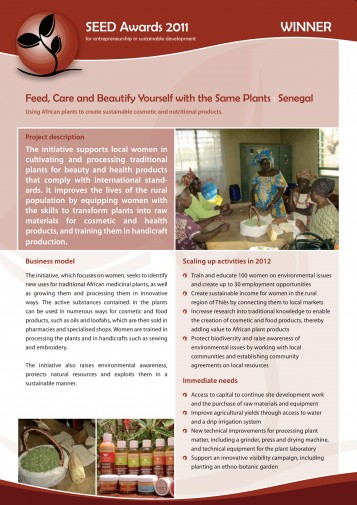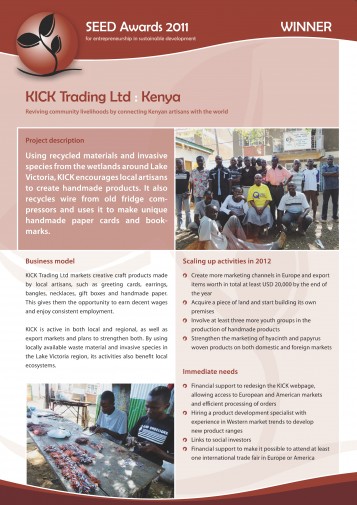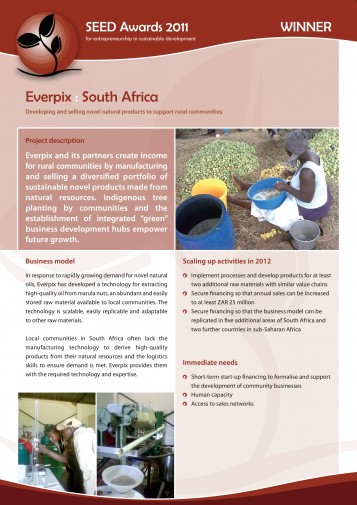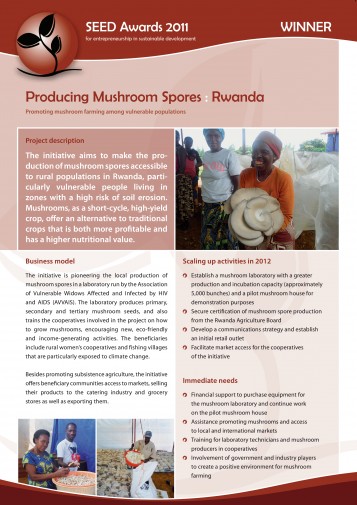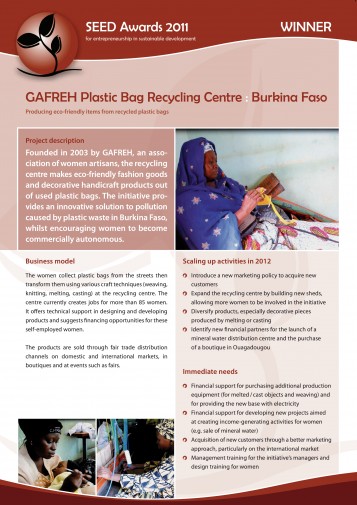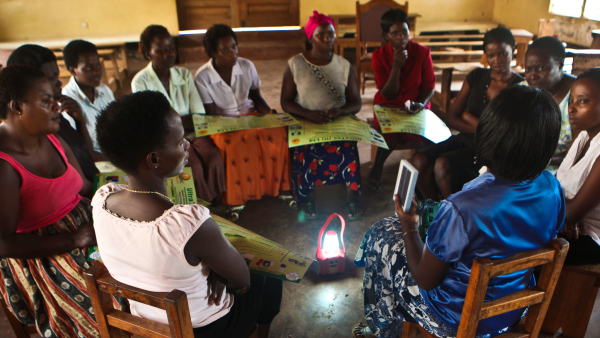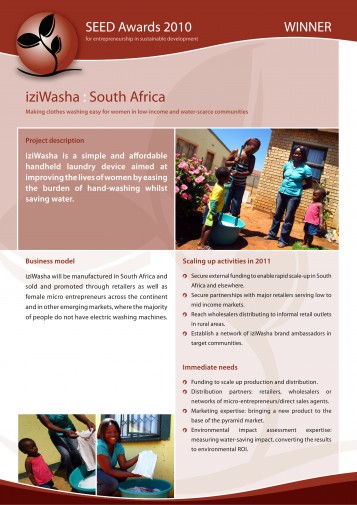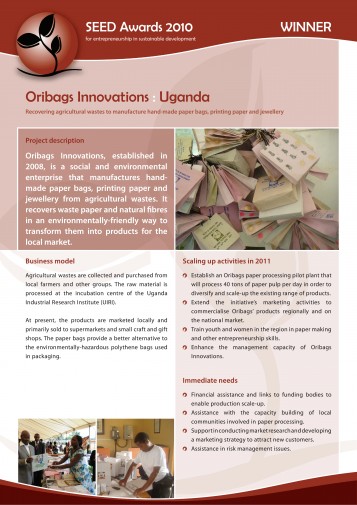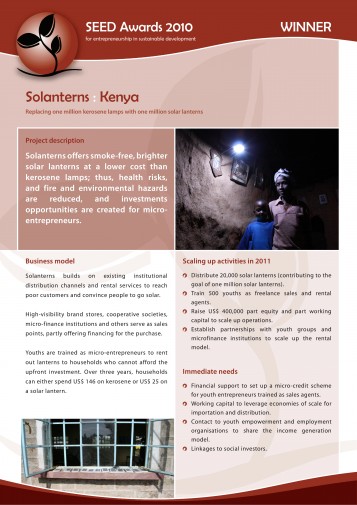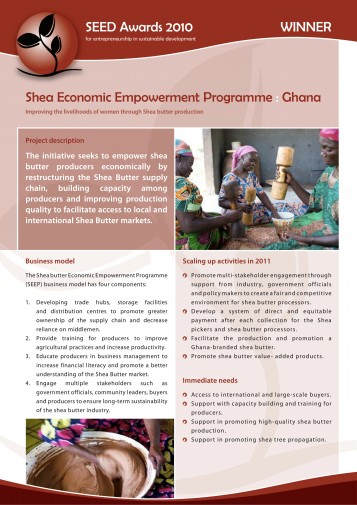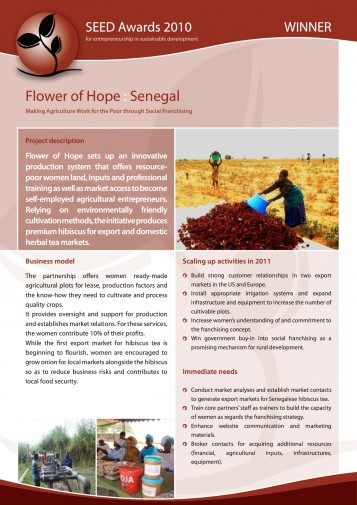UN Announces SEED Award Winners 2011 With Focus on African Entrepreneurs
Source: UN News
A company that transforms groundnut shells into fuel briquettes in Gambia and a business in Kenya where women produce aloe-based skin care products are among this year’s winners of a United Nations-backed award recognizing projects that help promote sustainable development. Read more
SDGs:













2009-2011 Study of Eco-Inclusive Enterprise Performance (Year 2)
Published: 12 September 2011 Heather Creech, Leslie Paas, Vivek Voora
This report draws insights from a three-year study of the performance of social and environmental micro enterprises and tackles two important questions. Firstly, whether and how micro and small social and environmental enterprises make contributions to social, environmental and economic progress within their communities; and secondly, what the enabling factors and barriers towards making such contributions are. Read more
SDGs:

Enterprise Brief: Solar Sister
Published: 30 August 2011
Solar Sister empowers African women by providing them with clean energy and economic opportunities. The initiative aims to spread solar power across Africa with the help of a direct sales network. By providing access to electricity in rural areas, especially for women, it helps to close the gender technology gap. Read more
SDGs:











Enterprise Brief: Women Environment Preservation Committee (WEPCO)
Published: 30 August 2011
The initiative seeks to enhance environmental conservation while generating income from recycled household waste, mainly in Kathmandu Valley. Women are provided with business and waste management training and access to micro-credit loans, and are encouraged to form conservation groups across the country. Read more
SDGs:







Enterprise Brief: Marula Zimbabwe
Published: 30 August 2011
The women-led initiative Marula Zimbabwe trains local women to produce, process, control the quality of, and market marula tree products. The fruit, bark, juice, skin, and leaves of this native plant are used to produce a variety of products, such as jam, wine, dried kernels, oil, nuts, herbal powder, and soap. Read more
SDGs:









Enterprise Brief: Sustainable Development For All
Published: 30 August 2011
The “Use Solar, Save Lives” initiative involves the design, production and distribution of solar-powered lanterns known as “MwangaBora”. The lanterns are distributed particularly to poor rural households without electricity. The initiative also helps communities to set up environmentally sound economic ventures with the money that would otherwise be spent on kerosene. Read more
SDGs:









Enterprise Brief: Community-based, sustainable and commercially viable Aloe vera products as alternative income generation for fisherwomen in Bar Reef Special Management Area in Kalpitiya
Published: 29 August 2011
The initiative introduces householdlevel Aloe vera cultivation and processing, helping to conserve coastal resources and reduce poverty among fishing communities in Kalpitiya. Aloe vera leaves are purchased by the cosmetics industry and an Aloe vera drink can be sold locally. Read more
SDGs:









Enterprise Brief: RISE Kenya
Published: 29 August 2011
The initiative empowers women in rural areas of Kenya economically by training them to farm and process aloe. The women are also taught how to manufacture value-added products from the aloe which can then be sold on local and national markets. Read more
SDGs:







Enterprise Brief: FADECO Trading Co. Ltd.
Published: 29 August 2011
The initiative tackles the problem of post-harvest losses by solar drying fruit and vegetables which can subsequently be stored or sold. Drying agricultural products helps to ensure food security during the rainy seasons and creates opportunities for local farmers to access new markets. Read more
SDGs:







Enterprise Brief: Dr Marie Dialo Labortoires
Published: 29 August 2011
The initiative supports local women in cultivating and processing traditional plants for beauty and health products that comply with international standards. It improves the lives of the rural population by equipping women with the skills to transform plants into raw materials for cosmetic and health products, and training them in handicraft production. Read more
SDGs:







Enterprise Brief: GebRaa
Published: 29 August 2011
Using recycled materials and invasive species from the wetlands around Lake Victoria, KICK encourages local artisans to create handmade products. It also recycles wire from old fridge compressors and uses it to make unique handmade paper cards and bookmarks. Read more
SDGs:









Enterprise Brief: Natural tree products and community resource management
Published: 29 August 2011
Everpix and its partners create income for rural communities by manufacturing and selling a diversified portfolio of sustainable novel products made from natural resources. Indigenous tree planting by communities and the establishment of integrated “green” business development hubs empower future growth. Read more
SDGs:







Enterprise Brief: Project for Producing Edible Mushroom Spores
Published: 29 August 2011
The initiative aims to make the production of mushroom spores accessible to rural populations in Rwanda, particularly vulnerable people living in zones with a high risk of soil erosion. Mushrooms, as a short-cycle, high-yield crop, offer an alternative to traditional crops that is both more profitable and has a higher nutritional value. Read more
SDGs:









Enterprise Brief: Centre de Recyclage des Sachets Plastiques du GAFREH
Published: 29 August 2011
Founded in 2003 by GAFREH, an association of women artisans, the recycling centre makes eco-friendly fashion goods and decorative handicraft products out of used plastic bags. The initiative provides an innovative solution to pollution caused by plastic waste in Burkina Faso, whilst encouraging women to become commercially auto nomous. Read more
SDGs:







UN Women partners with SEED and sponsors a 2011 SEED Gender Equality Award
Published: 18 July 2011
UN Women has partnered with SEED and will sponsor one special SEED Gender Equality Award in 2011 to initiatives that are women-led or owned, and prioritise gender equality or women's empowerment as a core objective. Read more
SDGs:



Enterprise Brief: IziWasha
Published: 29 August 2010
IziWasha is a simple and affordable handheld laundry device aimed at improving the lives of women by easing the burden of hand-washing whilst saving water. Read more
SDGs:







Enterprise Brief: ORIBAGS INNOVATIONS
Published: 29 August 2010
Oribags Innovations, established in 2008, is a social and environmental enterprise that manufactures handmade paper bags, printing paper and jewellery from agricultural wastes. It recovers waste paper and natural fibres in an environmentally-friendly way to transform them into products for the local market. Read more
SDGs:





Enterprise Brief: Solanterns: Replacing 1 Million Kerosene Lanterns with 1 Million Solar Lanterns
Published: 29 August 2010
Solanterns offers smoke-free, brighter solar lanterns at a lower cost than kerosene lamps; thus, health risks, and fire and environmental hazards are reduced, and investments opportunities are created for microentrepreneurs. Read more
SDGs:











Enterprise Brief: The Shea Economic Empowerment Program (SEEP)
Published: 29 August 2010
The initiative seeks to empower shea butter producers economically by restructuring the Shea Butter supply chain, building capacity among producers and improving production quality to facilitate access to local and international Shea Butter markets. Read more
SDGs:











Enterprise Brief: Flower of Hope
Published: 24 August 2010
Flower of Hope sets up an innovative production system that offers resourcepoor women land, inputs and professional training as well as market access to become self-employed agricultural entrepreneurs. Relying on environmentally friendly cultivation methods, the initiative produces premium hibiscus for export and domestic herbal tea markets. Read more
SDGs:






